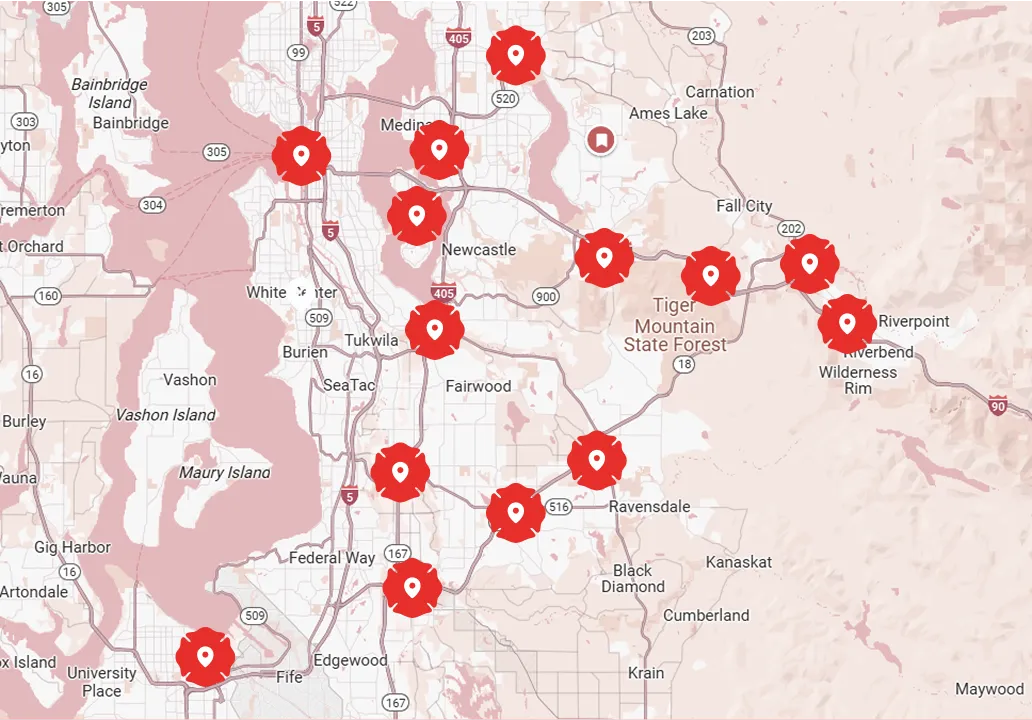Apartment Movers in Kirkland, WA
.webp)
Apartment moving services in Kirkland, WA require precise coordination and awareness of local building and community regulations. Movers plan around confined spaces, access restrictions, and weather-related challenges while managing street parking rules, HOA requirements, and permit needs. Common issues like narrow stairwells, limited elevator access, and insurance documentation are addressed through proactive planning and clear communication with property managers. Professional teams use proven strategies for protection, pre-move preparation, and efficient packing to prevent damage and delays. With detailed move-day checklists, transparent pricing guidance, and support for comparing quotes, these services ensure a well-organized, stress-free relocation experience tailored to Kirkland’s apartment moving needs.

Moving Apartment Movers in Kirkland, WA
Moving apartments in Kirkland, WA requires more than muscle and a truck. Tight stairwells, elevator schedules, building access rules, and Seattle-area weather all affect how smoothly a small-unit move goes. This page explains common apartment move challenges in Kirkland, practical strategies movers use to protect your belongings and your building, and what to expect on move day so you can make an informed, confident decision.
Why apartment moves are different in Kirkland
Apartment moves often mean limited space, shared hallways, and heavier coordination than single-family home moves. In Kirkland specifically:
- Rain and wet conditions during fall and winter increase slip and damage risk to floors and cartons.
- Many waterfront condos and downtown walk-ups have narrow streets, limited curb space, or HOA rules for loading zones.
- Older buildings can have tight stairways, doorways that require careful maneuvering, and elevators with size or time restrictions.Understanding these local constraints helps reduce damage, delays, and surprise fees.
Common apartment moving issues in Kirkland
- Narrow stairwells and low-clearance doorways that require disassembly or custom rigging.
- Elevator availability windows or shared-schedule elevators in multifamily buildings.
- Building rules: insurance requirements, damage deposits, escorted access, and restricted hours.
- Permit needs for curbside loading or temporary parking in busy neighborhoods like downtown Kirkland or along Central Way.
- Weather-related risks: wet floors, soggy boxes, and slowed loading during rain.
Building access and permit coordination
Coordination is essential for a smooth apartment move. Key steps professionals take:
- Confirm building rules in advance: move-in/out hours, elevator reservations, floor protection requirements, and any required certificates of insurance.
- Reserve elevator time blocks and arrange elevator pads to protect interior finishes.
- Secure curbside loading permits or temporary parking passes when street parking is limited. In denser areas of Kirkland, parking enforcement and limited commercial loading zones make permits and timed reservations important.
- Communicate with property managers and HOA boards beforehand to prevent denied access or last-minute rescheduling.These precautions reduce waiting times, protect property, and ensure compliance with building policies.
Stair and elevator considerations
- Stair moves: Experienced movers use protective wraps, shoulder dollies, and coordinated two-person techniques to navigate tight turns and preserve finishes. When furniture is oversized, disassembly or temporary removal of door frames can be arranged.
- Elevator moves: Reserve elevator blocks and use elevator pads and corner guards to prevent scuffs. Movers will monitor load weight and timing to avoid overstaying reserved slots.
- When elevators are too small or unavailable, plan for more manpower and extra time for stair carries. Advance inspection of stair widths and clearance saves surprises on move day.
Tight-space packing and maneuvering strategies
Packing and placement are just as important as the move itself:
- Measure doorways, staircases, and elevator interiors before moving large items. Movers will confirm these dimensions during the pre-move assessment.
- Use apartment-specific packing: stackable soft items for cushioning, mattress bags to protect from rain and dirt, and slim-profile moving blankets to navigate narrow hallways.
- Break down furniture when possible. Removing legs, arms, or frames makes maneuvering through tight spaces easier and reduces the risk of damage.
- Label boxes by room and priority for efficient placement in a small unit. This reduces the number of times large items must be moved within the apartment.
Pricing factors for small-unit moves in Kirkland
Instead of flat rates, apartment move pricing usually reflects specific variables:
- Access complexity: number of flights of stairs, elevator availability, or need for special equipment.
- Distance and parking constraints: time spent securing loading zones or walking distance from curb to unit.
- Time of year and weather: rainy conditions or peak season demand can affect scheduling and required protections.
- Packing services and additional labor: full packing, furniture disassembly, and reassembly increase labor time.
- Permits and building fees: HOAs or property managers may require insurance certificates or charge move-in fees that factor into the total cost.Understanding these elements helps you compare estimates meaningfully and avoid unexpected charges.
Move-day checklist for apartment moves
- Confirm elevator reservations and building rules the day before.
- Protect floors and door frames with pads and runners, especially in wet weather.
- Keep essential items separate: keys, chargers, medications, and a small overnight bag.
- Ensure stairways and hallways are clear of personal items before movers arrive.
- Have a designated point person at both origin and destination to approve placement and check for damage.
- Inspect larger furniture for tight clearances and confirm disassembly needs with movers ahead of time.
Tips for working with property managers and HOAs
Working cooperatively with building management reduces delays:
- Share mover credentials and insurance information early; many buildings require proof before allowing entry.
- Ask about preferred vendor lists, required security escorts, and any posted move schedules.
- Arrange elevator reservations and confirm loading zone permits at least several days in advance for busy Kirkland neighborhoods.
- Discuss expectations for floor and wall protection and agree on inspection procedures to document pre-existing conditions.
After the move: protection and settling in
- Inspect delivery areas for scuffs or damage while movers are present. Prompt documentation prevents disputes with property managers.
- Let movers handle bulky reassembly and placement to avoid strain or improper assembly in tight spaces.
- Air out and dry any wet items immediately if moved during rainy weather to prevent mildew.
- Keep an inventory of high-value items for insurance purposes until you are fully settled.
Apartment moves in Kirkland, WA demand close attention to building rules, tight-space techniques, and weather precautions. By planning for elevator reservations, permitting, and thoughtful packing, you reduce risk and make the move faster and safer. Understanding pricing drivers for small-unit moves helps you compare providers based on the real work required rather than headline numbers. With the right preparation and coordination with property managers, apartment moves can be efficient and damage-free even in Kirkland’s denser neighborhoods and rainy seasons.

